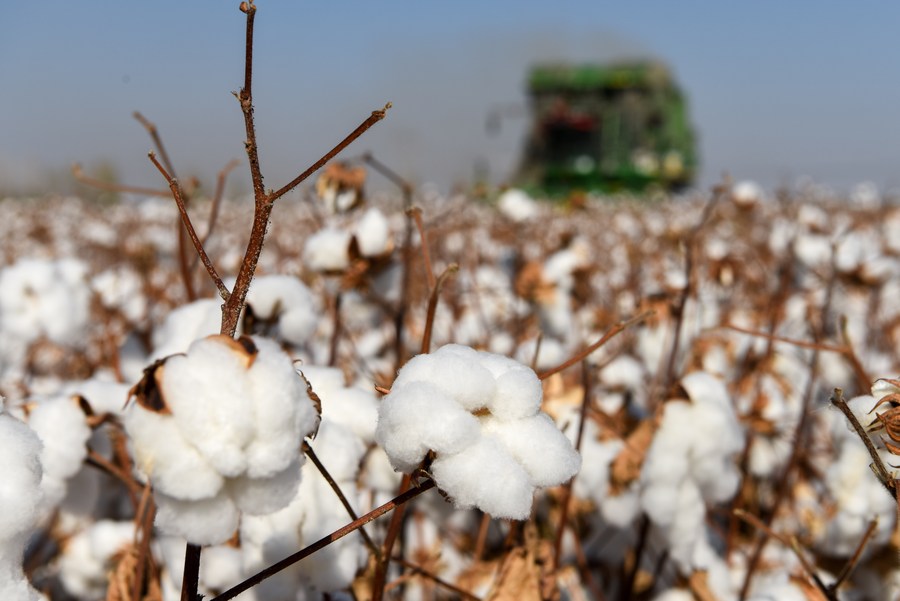US up to old tricks in trying to influence Xinjiang cotton industries


Using the pretext of "forced labor" to pressure and sanction other countries' companies is an old trick of the US, which is now exerting extreme pressure on companies in cotton-related industries in Northwest China's Xinjiang Uygur autonomous region, Global Times said in a story titled, "US forces 'Xinjiang forced labor' narrative on enterprises, industry agencies".
Apart from coming up with lies about "forced labor" to contain China, anti-China forces in the US and the West also have released reports, held hearings and taken other measures to slander China's Xinjiang policies, the newspaper said.
They also have persuaded the Better Cotton Initiative, a nongovernmental organization with head offices in Geneva and London that aims to promote better standards in cotton farming, to suspend licensing in China's Xinjiang region, even though it contradicts the results of its own Shanghai office's investigations.
The initiative's head office set up a special team on April 1, 2020 to investigate "forced labor" in Xinjiang, which included 11 member retailers, consulting companies and civil organizations, such as Shelly Heald Han from the US Fair Labor Association, Komala Ramachandra from Human Rights Watch, and Allison Gill from the International Labor Rights Forum.
Many of these people have engaged in anti-China activities, the Global Times said. The investigation team also worked further with human rights organizations from the US and the UK and held meetings with the initiative's leading team, exerting continued influence on Better Cotton Initiative's judgments on the issue of "forced labor."
On June 3, 2020, the initiative held a meeting with civil society organizations. In addition to members of the investigation team, the meeting also was attended by Louisa Greve, who is responsible for the Uygur Human Rights Project, a main project of the US-backed World Uygur Congress. The project was funded by the National Endowment for Democracy, which granted the organization a "whopping $1,244,698 between 2016 and 2019," according to the US-based news outlet The Grayzone.
The Global Times has learned from sources that the decision to suspend licensing in China's Xinjiang region was made during the meeting. The investigation team also required that any institutions that want to know about Xinjiang have the right to obtain information from the Better Cotton Initiative, and that the initiative should tell the public that none of its decisions were related to the investigation team.
"Currently, Better Cotton Initiative's activities in Xinjiang have been suspended, which means it has lost nearly 90 percent of its business in China - it is cutting off its own limbs," an insider who requested anonymity told the Global Times.
As China's largest cotton-producing area, Xinjiang's cotton output reached more than 5.1 million metric tons last year, 87.3 percent of the country's total and an increase of 3 percent over 2019, according to the National Bureau of Statistics.
- Most parts of country were warmer than usual in 2025
- Poverty relief transitions to governance
- 'Micro sports areas' boost students' fitness, fun
- China tips scales toward healthier living trends
- Anti-corruption efforts focus more on work conduct issues
- Deeper reflections on 'cave-dwelling conversation'




































